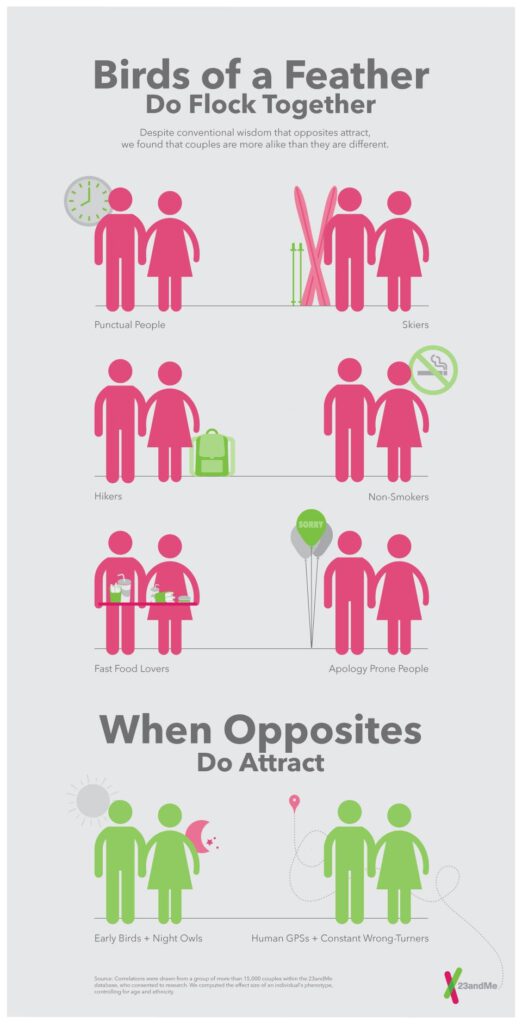Adding more credence to the saying that “birds of a feather flock together” a new study published this week found that friends are as genetically similar as fourth cousins.
 The findings in the Proceedings of the National Academy of Sciences by researchers at U.C. San Diego and Yale found that friends are more alike genetically than strangers. The study, which looked at about 2,000 adult friends, adds to a growing body of data indicating that people tend to bond with those with whom they are more alike.
The findings in the Proceedings of the National Academy of Sciences by researchers at U.C. San Diego and Yale found that friends are more alike genetically than strangers. The study, which looked at about 2,000 adult friends, adds to a growing body of data indicating that people tend to bond with those with whom they are more alike.
“The striking thing here is that friends are actually significantly more similar to one
another than we were expecting,” said the paper’s co-author James Fowler in an NPR story this week.
In February 23andMe scientists Aaron Kleinman and Emma Pierson looked at correlations between more than 15,000 couples to find that men and women with children tend to be more alike than they are different. And in May, scientists at the University of Colorado Boulder made similar findings among married couples in a study that looked at almost 1,000 people.
Beyond torpedoing the notion that opposites attract, the studies may point researchers into looking at the evolutionary reasons why humans not just mate with those with whom they share genetic similarities but also why they join social groups with individuals with whom they are a like.



